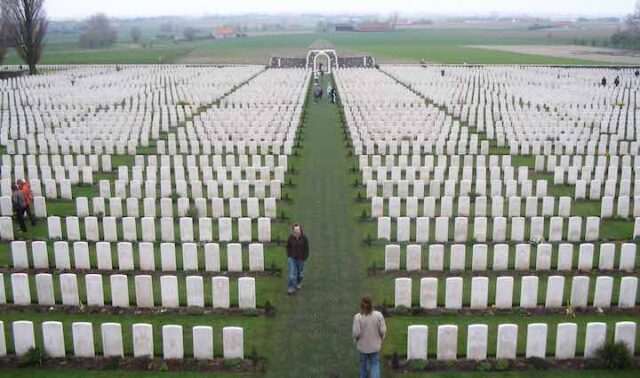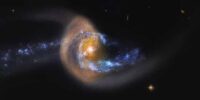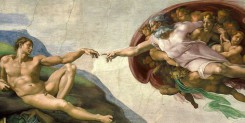Not a very pleasant topic, but one of the main arguments against the existence of a good God.
Is there any reason why a good God would create a world where there is pain, predation, suffering and death?
A biochemical view
Sy Garte is a biochemist, a researcher who has authored hundreds of scientific papers and several books. I reviewed his excellent book, The Work of His Hands here.
In his book, Sy considers the questions of death and predation from a biochemical viewpoint. I found his insights helpful.
The laws of nature create an orderly world
There are many things in the physical laws governing the universe that make it orderly and predictable:
- The speed of light is fixed.
- We can’t travel backwards in time.
- There is no perpetual motion.
- Mathematics and the physical laws seem to apply right across the universe.
- Cause and effect.
Without these more less fixed facts, we would find it difficult living in the universe, and it would certainly be difficult to develop any science or technology. Without the laws of physics, the world would be random and almost magical.
A non-evolving universe would be sterile
It is possible to imagine a world that is immortal, which means it doesn’t evolve and there is no reproduction. Such a world wouldn’t change so much and there wouldn’t be much growth.
For growth and evolution, there must be reproduction and death. Without death, growth would get out of control, resources would be depleted and life (for some creatures at least) would crash. Organic material is finite and needs to be recycled. For ecological systems to flourish, there needs to be predation to provide balance between competing species.
For example, in the Yellowstone National Park, the wolf population was eradicated in the 1930s. The loss of these predators allowed elk to flourish, and they ended up over-grazing the landscape, including riverbank vegetation important for beavers. So the landscape became denuded, beaver numbers dropped and the river channels eroded more because they weren’t protected by the vegetation.
But when wolves were re-introduced in 1995, the damage was undone. Elk herds were forced to move more often, so grazing was better distributed over the landscape. Riverside vegetation returned and erosion stabilised and new habitat was created. Beavers returned and created habitat for other water life. Tree growth increased and birds returned. The whole ecosystem was rejuvenated.
So in our world with its physical laws and evolutionary processes, predation is necessary for a balanced ecosystem.
Geophysical process are necessary too
The continents of the world sit on tectonic plates that slowly move. The map of the world of billions of years ago would be very different to today’s map.
Volcanoes, earthquakes and tsunamis are often the result of tectonic plate movement. So the fact that the earth contains moving plates is a cause of loss of life and property.
On the other hand, the movement of plates billions of years ago exposed “new rocks to the atmosphere, which led to chemical reactions that stabilized Earth’s surface temperature over billions of years. A stable climate is crucial to the evolution of life.”
So again, processes that do harm also help create the conditions for life.
But couldn’t God have done it differently?
Surely an omnipotent God could have created a world that all the features we see and need, but without the pain, predation and death?
I guess you’d have to think so, but what do we know about other forms of the universe?
But this raises another question.
Why did God do it this way?
Sy Garte suggests that a physical world like we experience has some advantages in achieving what we may presume God was aiming for.
An evolving world means God isn’t necessarily directly involved in the creation of human life. Lower forms of life can evolve to higher forms, eventually producing “large animals with complex nervous systems”.
This allows humans to be thinking, autonomous beings, capable of loving God and being loved by him, but with the freedom to choose not to respond to God in that way. If God was more closely involved in creating human beings, we’d have less freedom.
Who knows?
I really can’t know if all this was in the mind of God. But it seems reasonable.
I can believe that the world is the way it is because it was the only way to produce the outcome God wanted.
Of course that doesn’t make it easier to understand or accept the suffering that goes with competition and predation. That remains a difficulty for a Christian believer.
But Sy Garte’s insights have provided some extra nuance to how we can see these issues.
Photo: Tyne Cot war cemetery in Belgium, by Ahubling at English Wikipedia, CC BY 3.0.




